Key Stage 4 Revision and Assessment / Exam Support
There is a clear strategy for supporting students in Key Stage 4, from the moment that they start Year 10. All Key Stage 4 students can access all of the resources presented in assemblies and discussed / modelled during tutor time, that are typically shared via Class Charts and can also be accessed in their Year Group 'Teams' tile (via My Apps Portal - top of web page).
Class Charts is the system through which we update students, parents and carers, regarding their child's engagement in their education, set homework and in addition, send recommended resources and updates via announcements. It is essential to monitor this system / application (App) weekly to ensure that you do not miss out.
An overview of some of the key resources and guidance is provided below, and is underpinned by the 3 steps to success with revision;
- Build Knowledge & Understanding - content taught
- Summarise and Memorise key subject information - typically within Knowledge Organisers
- Apply knowledge, practising past papers / answers exam questions - provided by teaching staff
Why Review and Revise?
Learning without reviewing / revising is like running a bath without the plug in! Some of the learning will stay, but much will be forgotten. All students can develop their ability to understand by reviewing their learning. Once learning has been reviewed, soon after and then periodically after, before it is forgotten, it will eventually remain in long-term memory. This will help students in future assessments / exams but most importantly, help them to develop academically and personally.
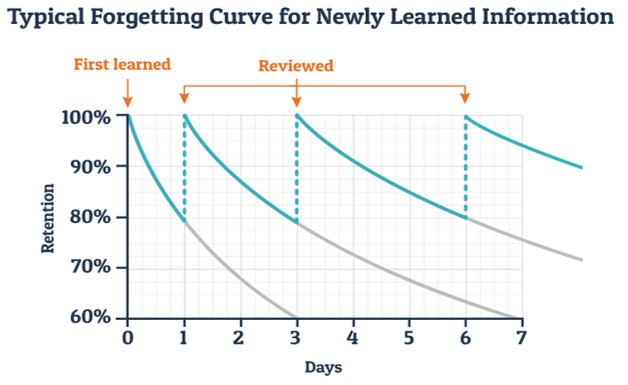
Teaching staff routinely revisit / review prior learning, but students need to follow this guidance to prove to themselves that they can do really well in their studies.
If convincing is needed at home, use the example of progressing on a particular PC/XBox/PS type Game, as children start at the first level, often fail, play again and over time (likely too much time!), progress through levels, over coming challenges, being tactical etc... simply apply the same commitment and approach to GCSE's, and students will meet with success!
Planning WHEN to revise:
One of the most important things Key Stage 4 students need to manage is their time! This will help students manage homework, ongoing review of learning, and targeted revision for assessments / exams. To achieve this, we recommend students have and routinely follow a weekly 'Revision Timetable' (see attachments below).
Or create your own revision timetable here: Revision Timetable Maker / Study Planner (getrevising.co.uk)
HOW to revise:
Attached below and found in the Knowledge Organiser section of the website is the 'How to Revise - Student Guide'. This has suggested approaches that students can try with revision resources, or using content summarised in their Knowledge Organisers, or from recommended websites etc. Approaches include Self Quizzing, Blurting, Mind Maps, Flashcard.
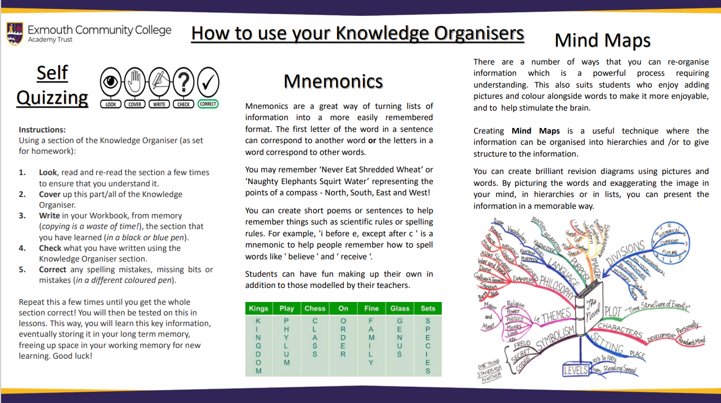
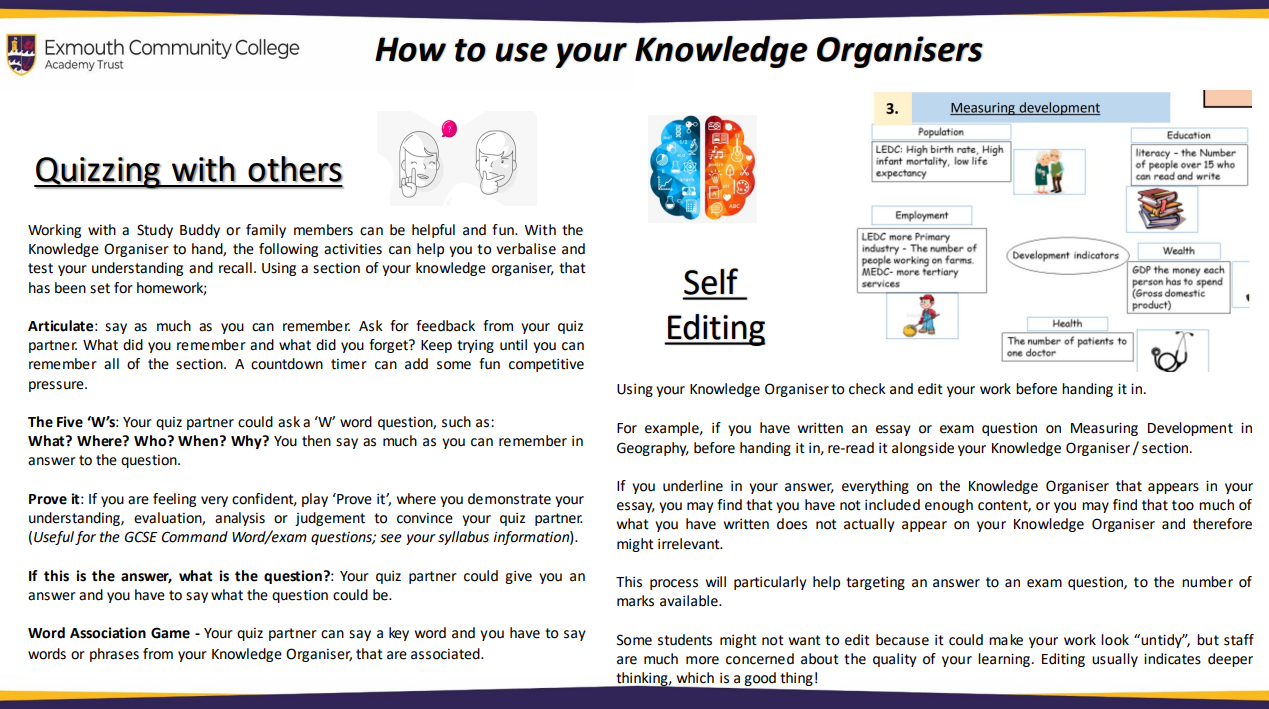
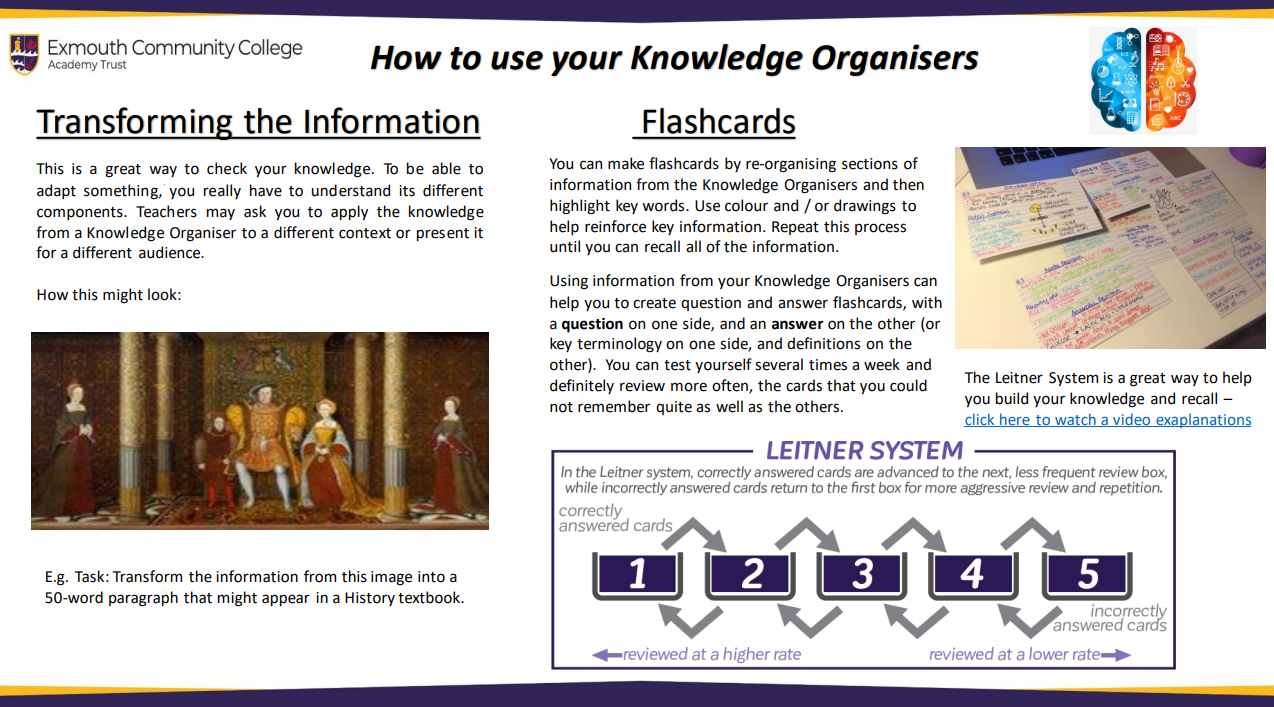
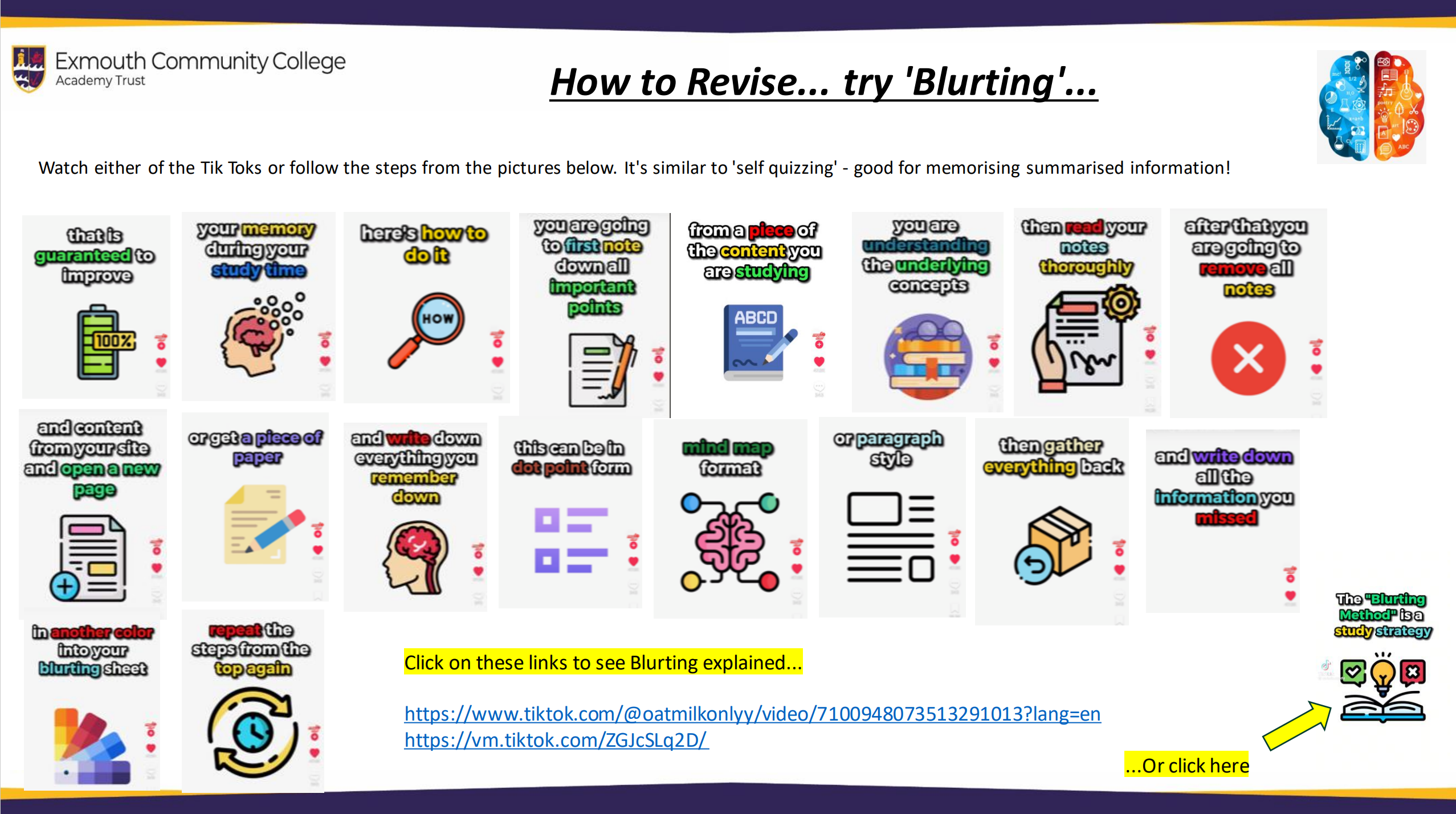
WHAT to revise:
Beyond routine review of new learning, and reviewing past learning to keep it fresh in students' memory, we also help students specifically prepare for Mock and Summer Exams by providing a 'Countdown' Revision Resource.
Typically, for both Year 11 Mock Series, students will have a 5-1 Countdown Revision Plan and for the summer GCSE's, a 9-1 Countdown Revision Plan. Year 10 students will have a similar 6-1 Countdown Resource for their Summer Mock Exams.
The Countdown Revision Plans are sent directly to Students via Class Charts and can be found in their Year 11 Teams files (class materials). These help plan 'what' to revise during each week, in each subject studied. Students will then have retrieval tests in lessons, ensuring that they are engaging well in the countdowns.
During the Spring Term, accompanying the Countdown, we provide a Power Hour Intervention Programme - with Subject Specific Revision and Intervention sessions, that run weekly, during break, lunch and after college.
WHAT to revise - being more tactical:
Personal Learning Checklists - a step beyond the Revision Countdowns
Students in Key Stage 4 will be introduced to Personal Learning Checklists (PLC's) in most subjects. These are documents that help students narrow down and target their revision to areas that they may not be as confident in, acting as a checklist. Again, this helps better manage time spent revising.
Students can access their PLC's direct from their Subject Teams area or from the Year Group Teams area, an example can be found in the attachment below.
Past Papers / Exam Questions:
Subject Staff will provide past paper questions and practising them, help students to get more familiar with the types of questions that will come up in exams. They can apply their knowledge and technique, and see how well they can structure their answers, particularly if they use the marking schemes and examiners reports.
WARNING - make sure that throughout revision and using past papers, that students use the right exam boards - see attachments below for the subject exam boards studied at ECC.
Need more support?
Managing Exams and Well-being
Obviously, we want students to understand and accept the challenges that accompany studying qualifications, and in the process, ensure that they can manage the associated pressures and feelings of anxiety / stress. Such feelings are normal and the very best way that students can typically manage such feelings, is by being organised, using the advice and guidance that is provided.
Students can, of course, access the additional support that is available in the college, through discussion with their Tutor in the first instance. Such support and advice is routinely shared in college, within the Revision and Exams Preparation resources. Many of such recommendations and support is also accessible from the Student Well-being section of the Website.
Homework and Study Support Sessions
Homework and Study Support Sessions are available to Key Stage 4 students between 3pm - 4pm, Monday to Friday, in the ICT Rooms upstairs in the 500's Block on Gipsy Lane. Here, students can complete homework, review their learning, revise for assessments, with support from Staff.
Students may be signposted here, to catch up on missed work if absent or where they may require support to better understand their learning, improve academic achievement and, of course, enjoyment of learning.
